16 Reasons Why You Should Think Twice Before Killing Spiders In Your Backyard
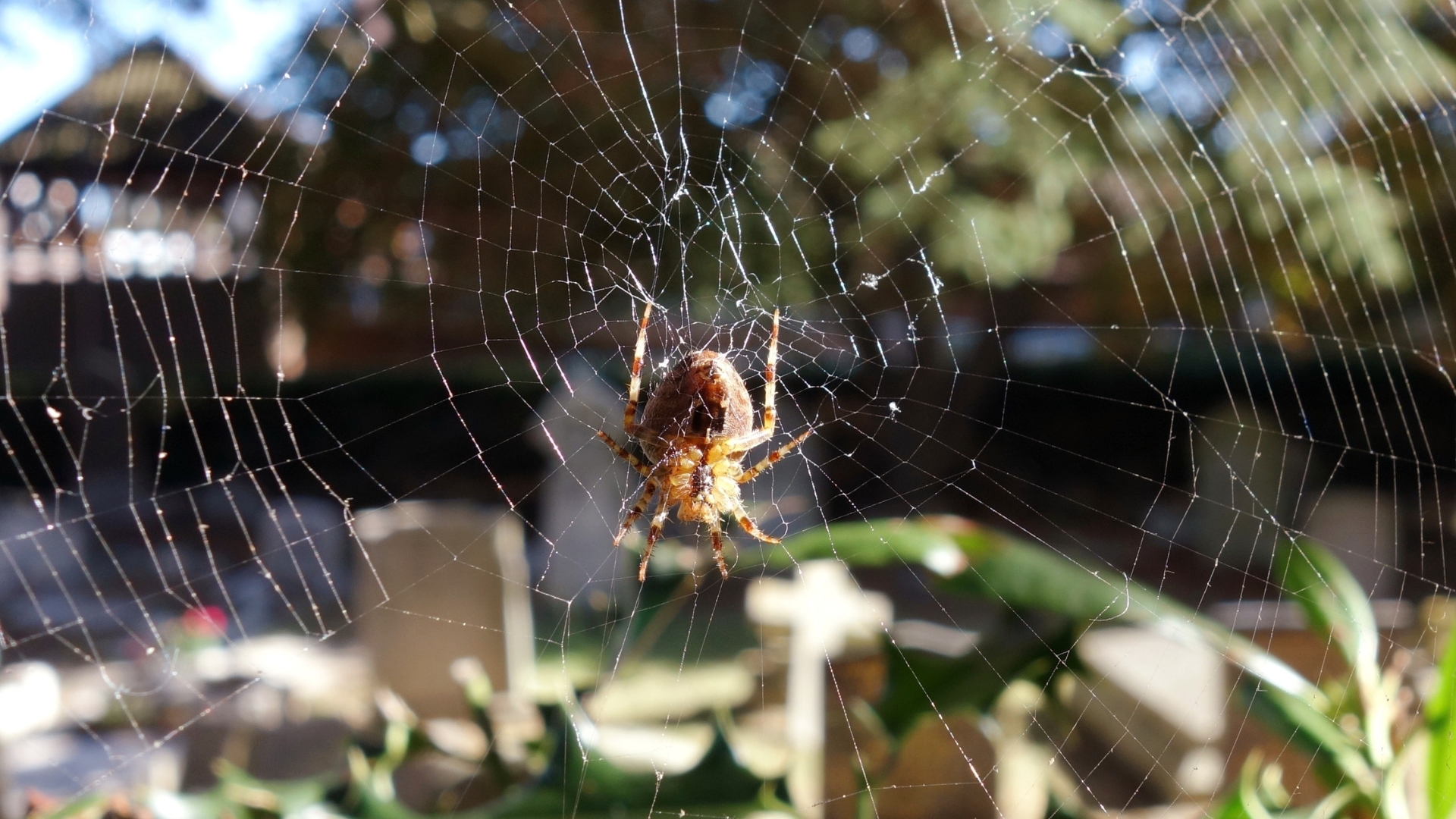
I know spiders can be a little creepy, but they’re not the backyard villains they’re made out to be. For a long time, I squashed every one I saw—until I realized they were quietly helping me out.
These eight-legged hunters are amazing at keeping mosquito and fly populations in check. Most of them just want to hang out in peace and snack on the real pests.
So before you go after them with a broom, it might be worth rethinking who’s really the problem.
1. Natural Pest Control Experts
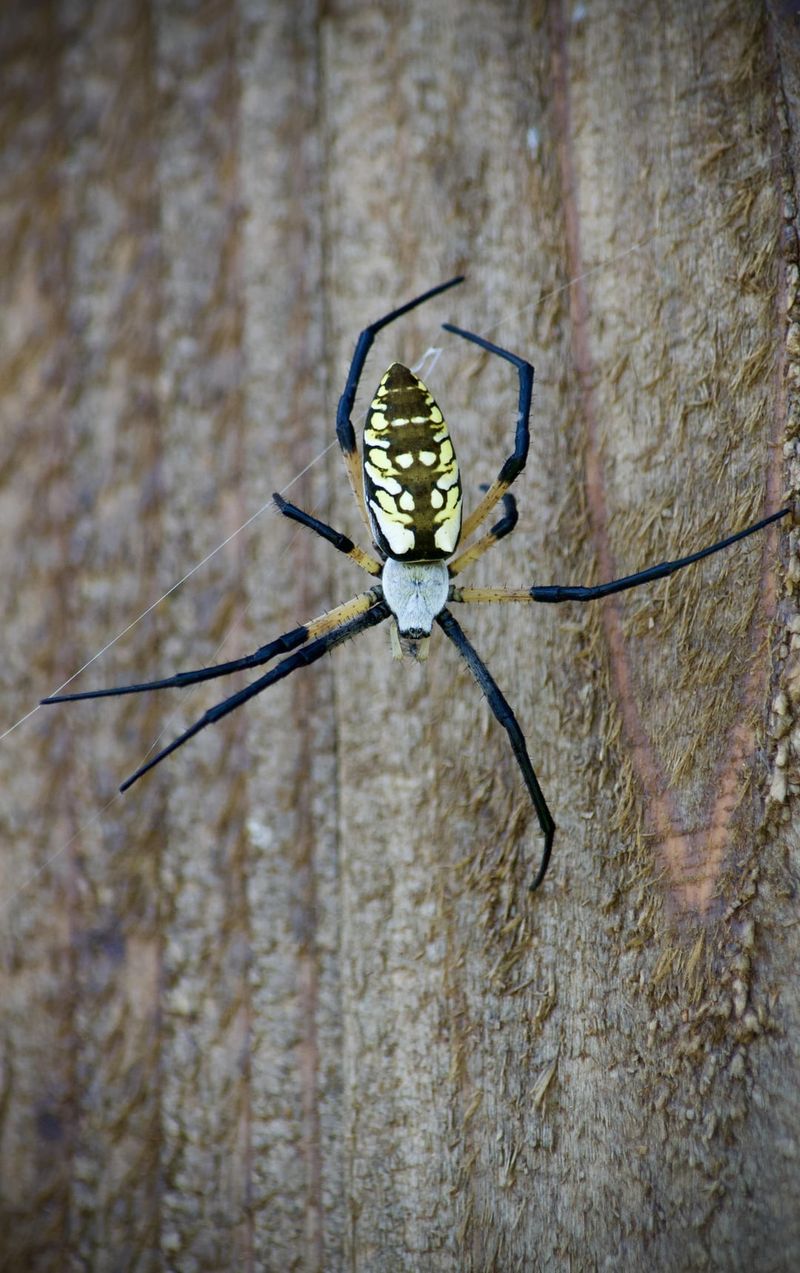
Spiders feast on common garden pests like aphids, mosquitoes, and flies without you lifting a finger. A single spider can devour hundreds of insects each year, providing free pest management for your garden.
This natural control system means you’ll need fewer chemical pesticides, saving money while keeping your garden healthier. Isn’t it amazing how these tiny hunters work tirelessly to protect your plants?
2. Ecological Balance Keepers
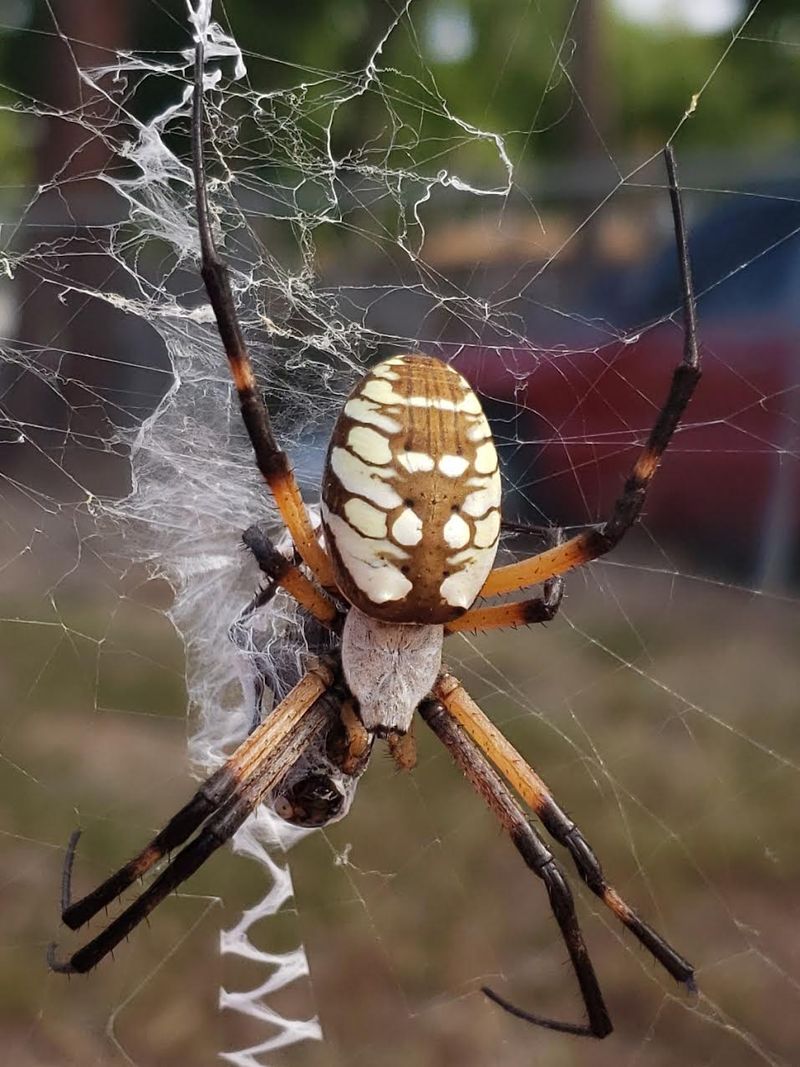
Your backyard is actually a miniature ecosystem where every creature plays a role. Spiders help maintain this delicate balance by preventing any single insect species from becoming too numerous and destructive.
Without these eight-legged regulators, certain insect populations might explode and damage your garden plants. Their presence signals a healthy, functioning backyard habitat that can sustain itself naturally.
3. Fascinating Web Architecture
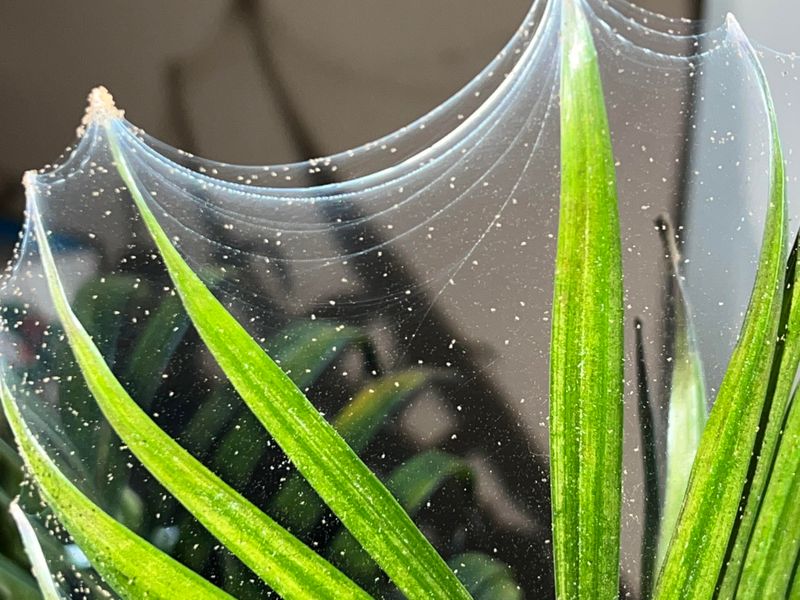
Spider webs are engineering marvels that transform your garden into an art gallery. These silken structures glisten with morning dew, creating magical displays that photographers and nature lovers treasure.
Each species builds distinctive web patterns—from the classic orb webs to funnel shapes and irregular tangles. Watching a spider construct its intricate home offers a free glimpse into one of nature’s most remarkable building processes.
4. Minimal Human Threat
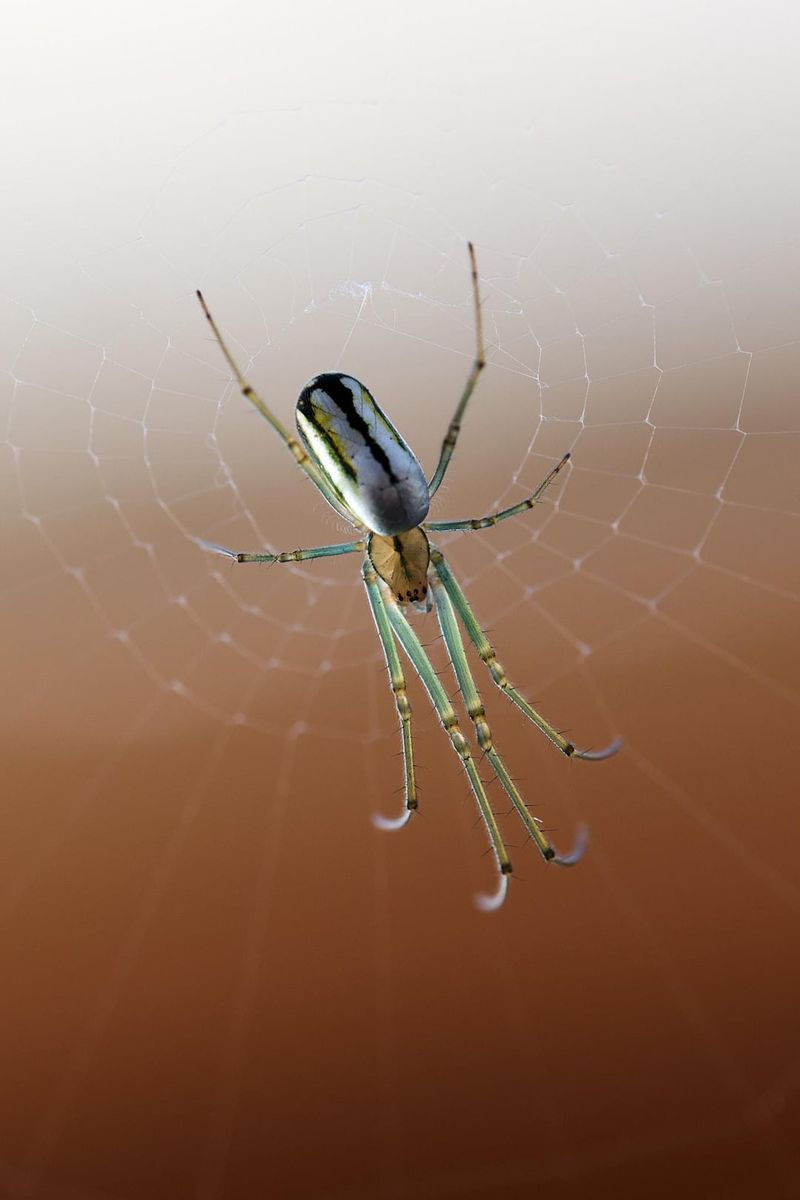
Most backyard spiders pose absolutely no danger to humans. The vast majority of species found in gardens lack either the venom strength or the jaw size to harm people.
These shy creatures actually prefer avoiding humans altogether. They’re much more interested in catching flies than bothering people. Learning to identify the few potentially dangerous species in your area can help you coexist safely with all the rest.
5. Scientific Research Value
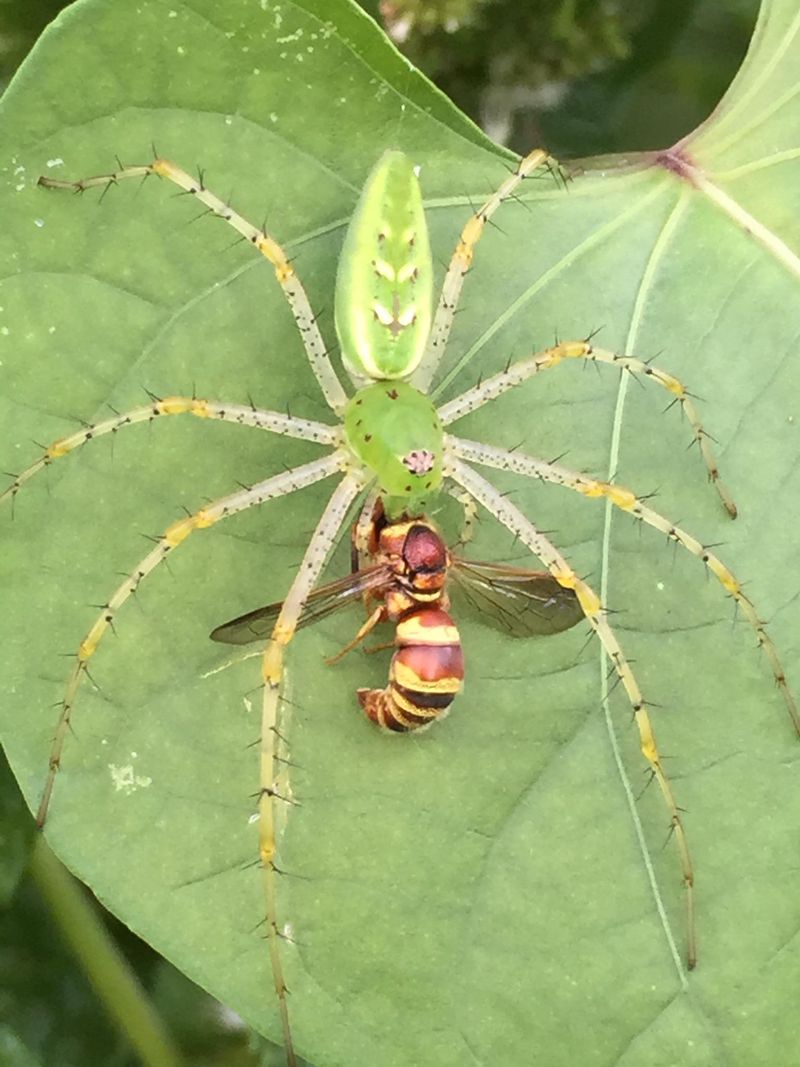
Spider silk amazes scientists with its incredible strength-to-weight ratio—stronger than steel when compared by thickness! Researchers study these natural fibers to develop revolutionary materials for everything from bulletproof vests to medical sutures.
Spider venom compounds are being investigated for potential treatments for stroke, pain management, and even Alzheimer’s disease. Your backyard spiders contribute to the biodiversity that makes such scientific discoveries possible.
6. Mosquito Population Control
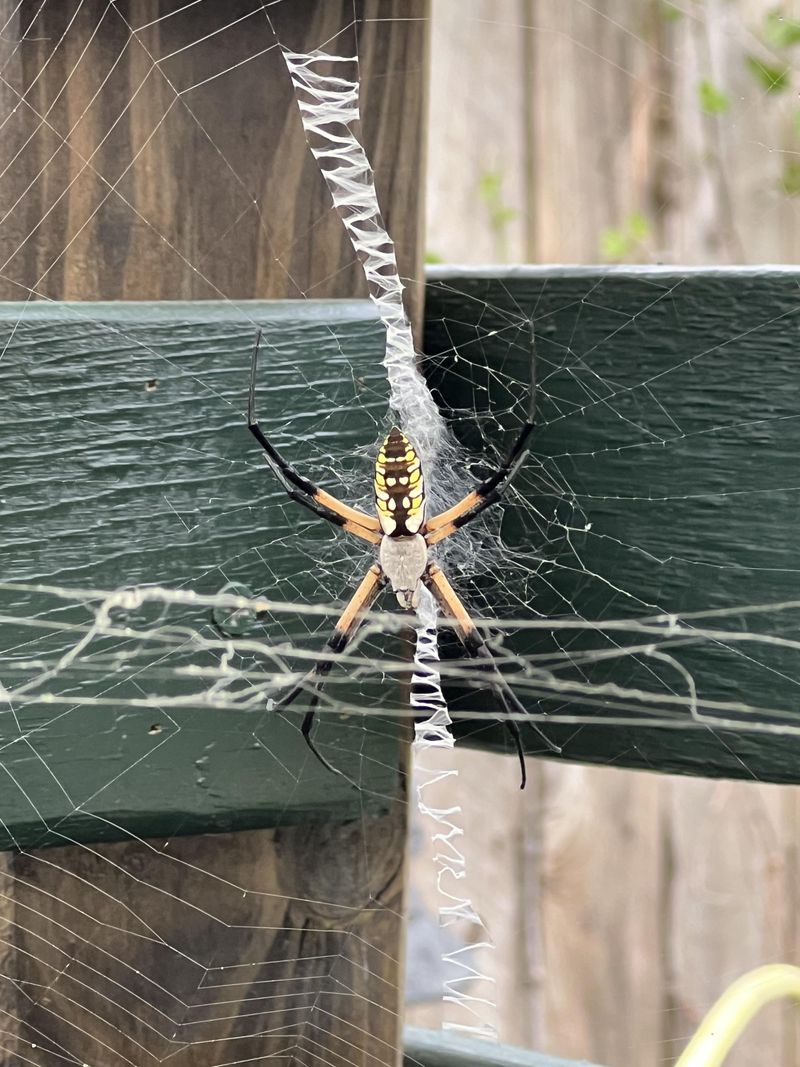
Hate those itchy mosquito bites during summer barbecues? Spiders are your allies in fighting these bloodsuckers. Many spider species specifically target mosquitoes as preferred prey, naturally reducing their numbers around your home.
A healthy spider population can significantly decrease mosquito-borne disease risks in your area. By protecting backyard spiders, you’re actually creating a more comfortable outdoor space for yourself and your family.
7. Fascinating Parental Behaviors
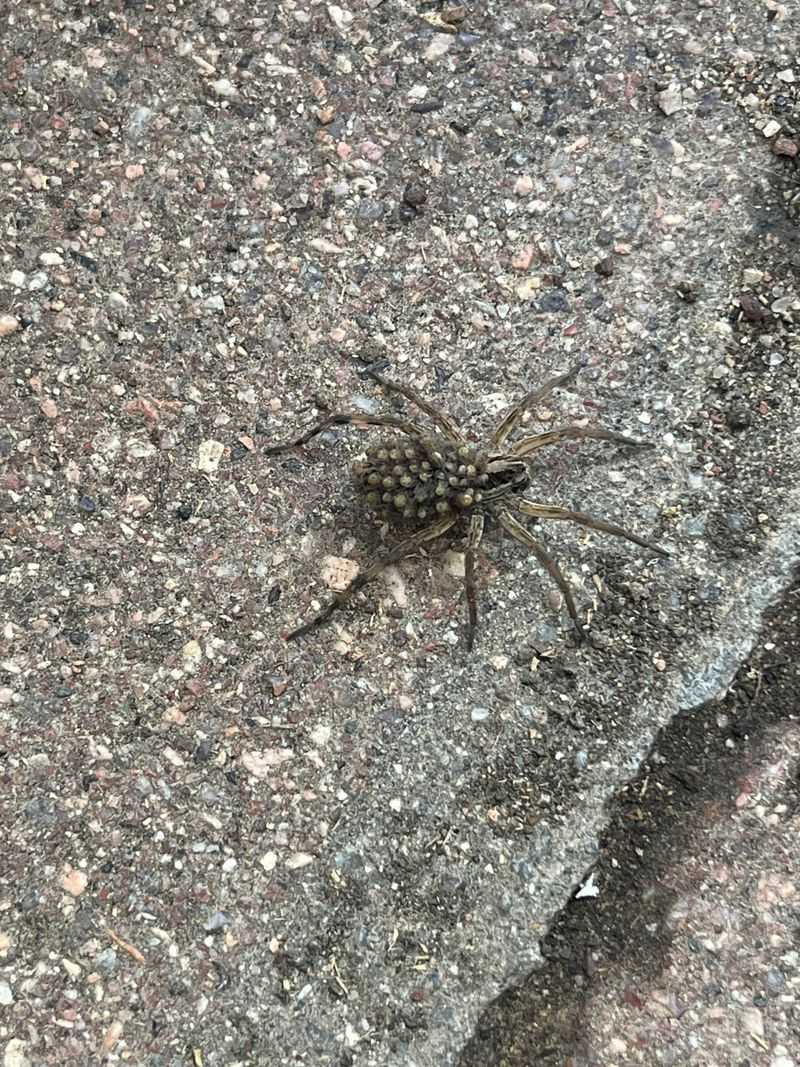
Many spider species display remarkable parenting skills that rival those of larger animals. Wolf spiders carry their egg sacs everywhere, then their babies ride on mom’s back after hatching—a touching example of maternal care.
Some species even sacrifice themselves to provide their offspring’s first meal. Observing these complex behaviors in your garden offers amazing educational opportunities, especially for curious kids interested in nature.
8. Biodiversity Indicators
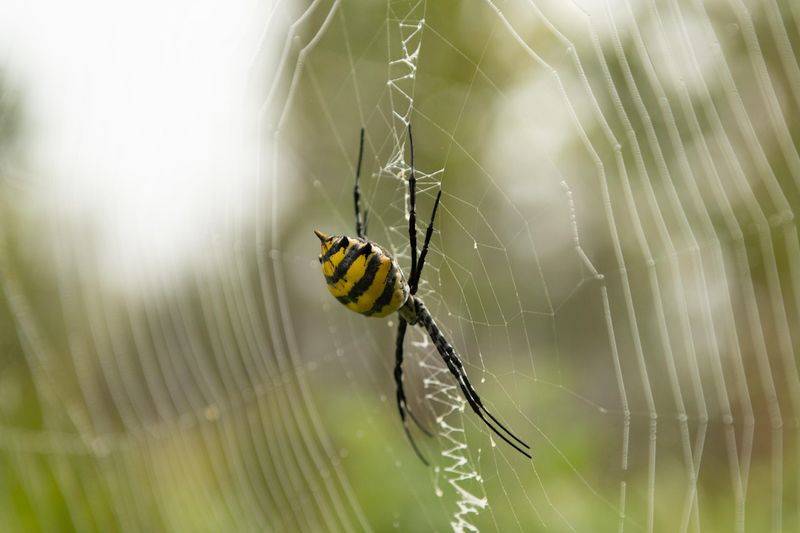
A diverse spider population signals a healthy environment. Their presence indicates your garden has enough varied insects and suitable habitats to support complex food webs.
Scientists use spider diversity as an ecological health indicator. Finding different spider species in your yard suggests you’re maintaining a chemical-free, balanced space. This natural balance helps your garden thrive with minimal human intervention.
9. Evolutionary Marvels
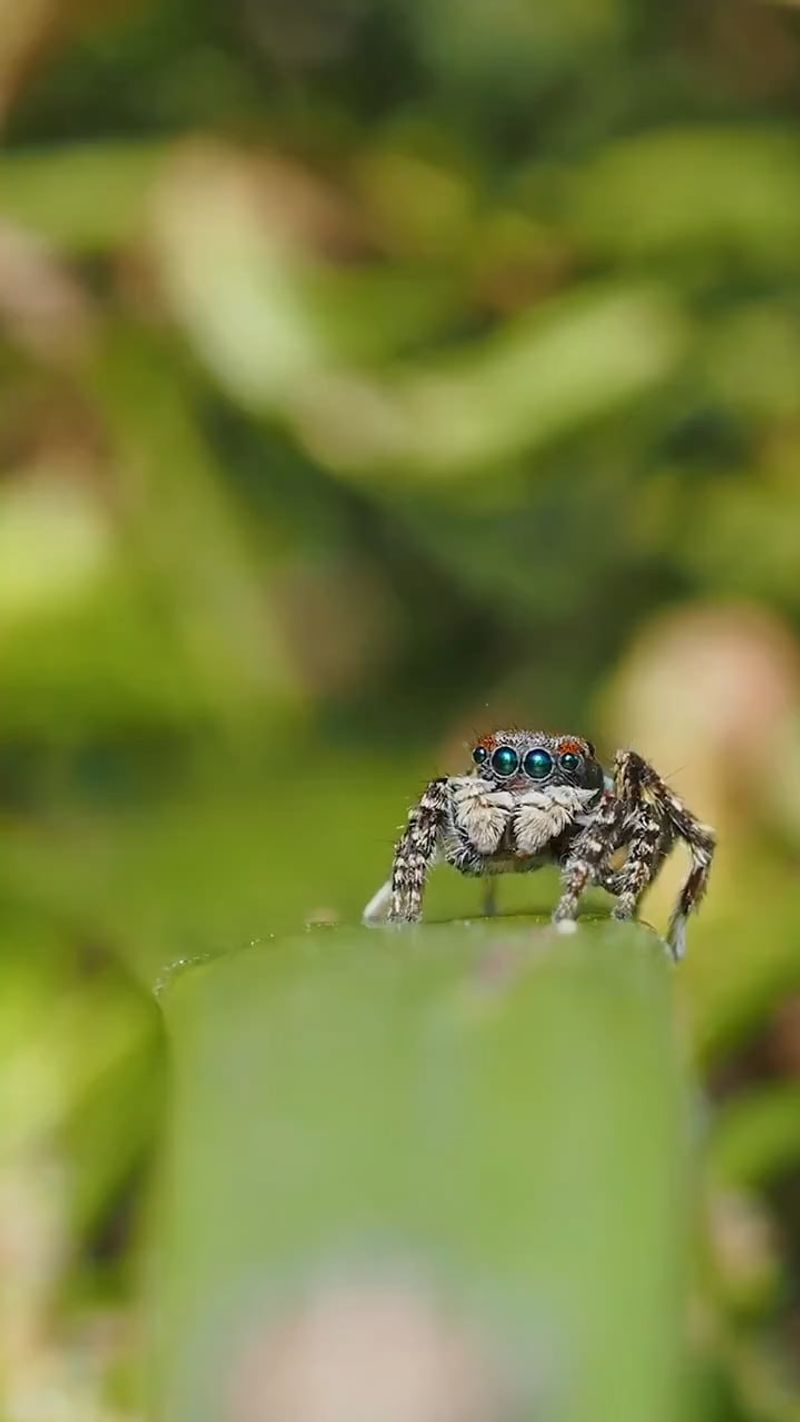
Spiders have survived on Earth for over 300 million years—outlasting dinosaurs and countless other species. This remarkable evolutionary success story deserves our respect and protection.
Their ancient lineage has produced incredible adaptations like specialized hunting techniques and complex courtship rituals. Watching jumping spiders perform elaborate dances or crab spiders change color to match flowers connects us with evolutionary processes that shaped our world.
10. Fly Control Champions

House flies carry diseases and contaminate food, making them unwelcome guests at any outdoor gathering. Spiders stationed near doorways and windows naturally intercept these pests before they enter your home.
A single web-building spider can catch dozens of flies daily without chemicals or noisy zappers. This silent service continues 24/7, protecting your family from fly-borne illnesses while you enjoy cleaner, more pleasant outdoor meals.
11. Teaching Opportunities
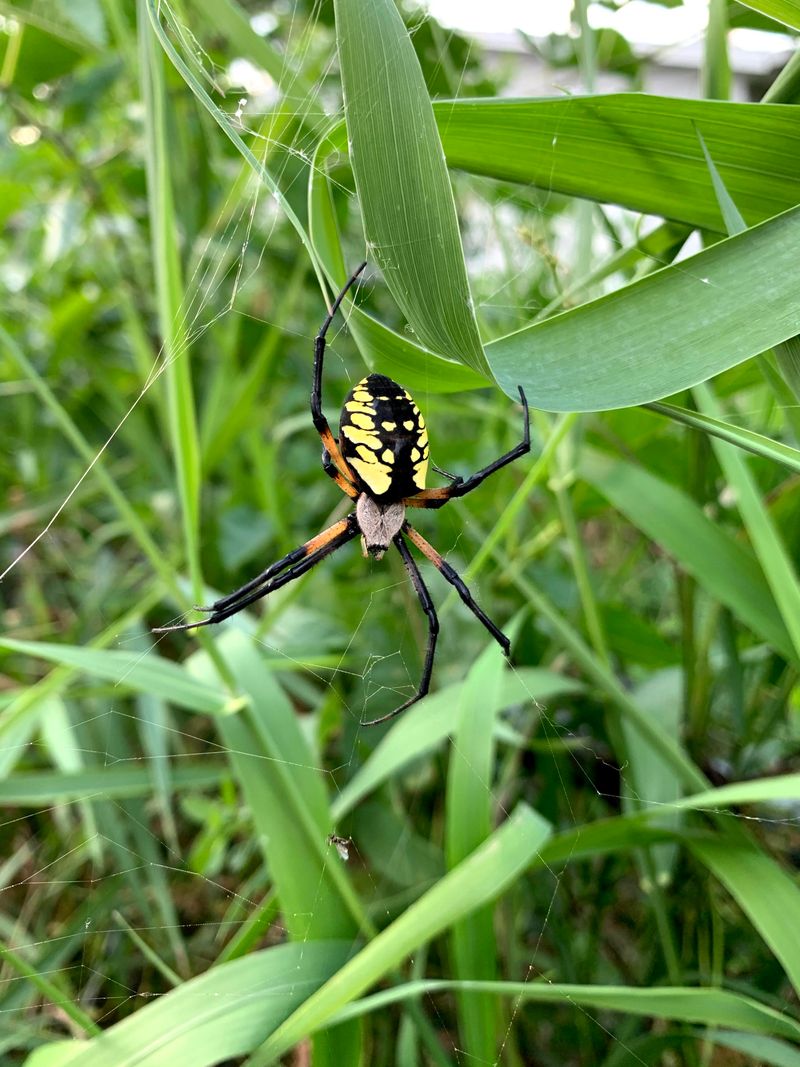
Backyard spiders provide perfect subjects for teaching children about nature. Their visible behaviors—web building, hunting, and egg-laying—can be observed safely from just feet away.
These encounters help kids overcome unnecessary fears while learning biology concepts firsthand. Watching a spider wrap its prey or rebuild a damaged web teaches patience and observation skills that no video game can match.
12. Photography Subjects
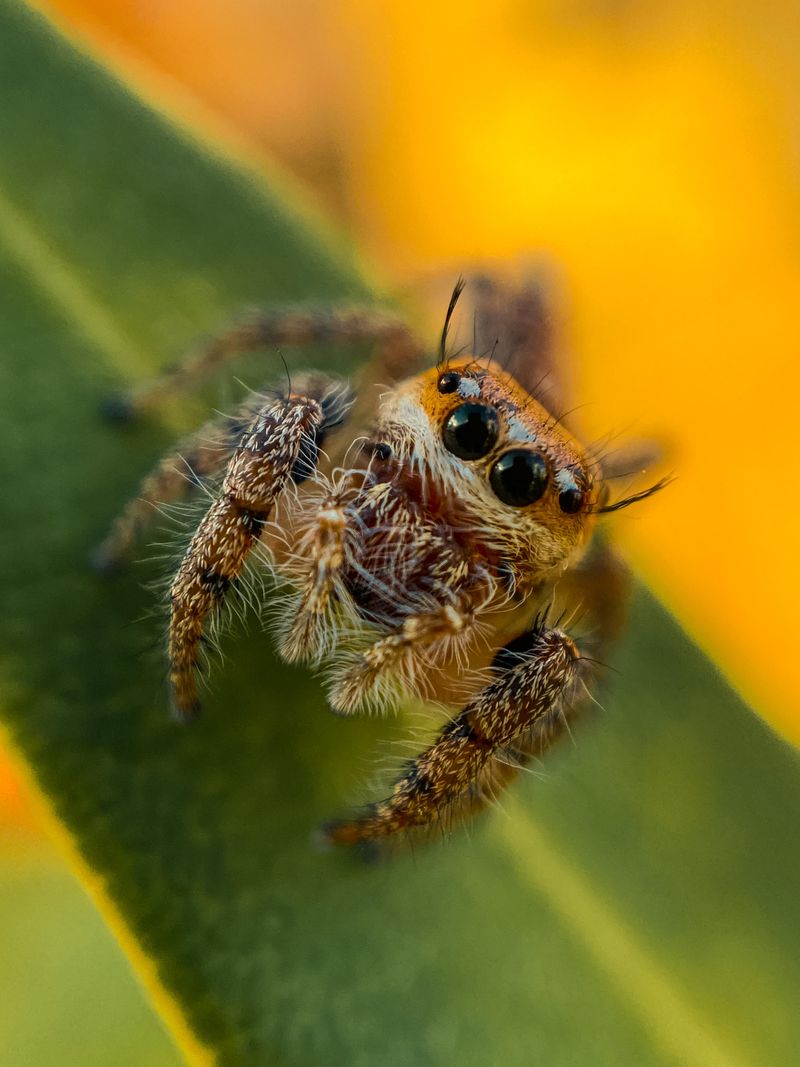
Spiders offer incredible opportunities for macro photography enthusiasts. Their intricate details—multiple eyes, specialized limbs, and colorful markings—create stunning images that reveal hidden beauty.
Morning dew on webs creates natural prism effects as sunlight passes through. Even smartphone cameras can capture these magical moments, providing creative inspiration and shareable content that celebrates rather than fears these backyard residents.
13. Chemical-Free Gardening
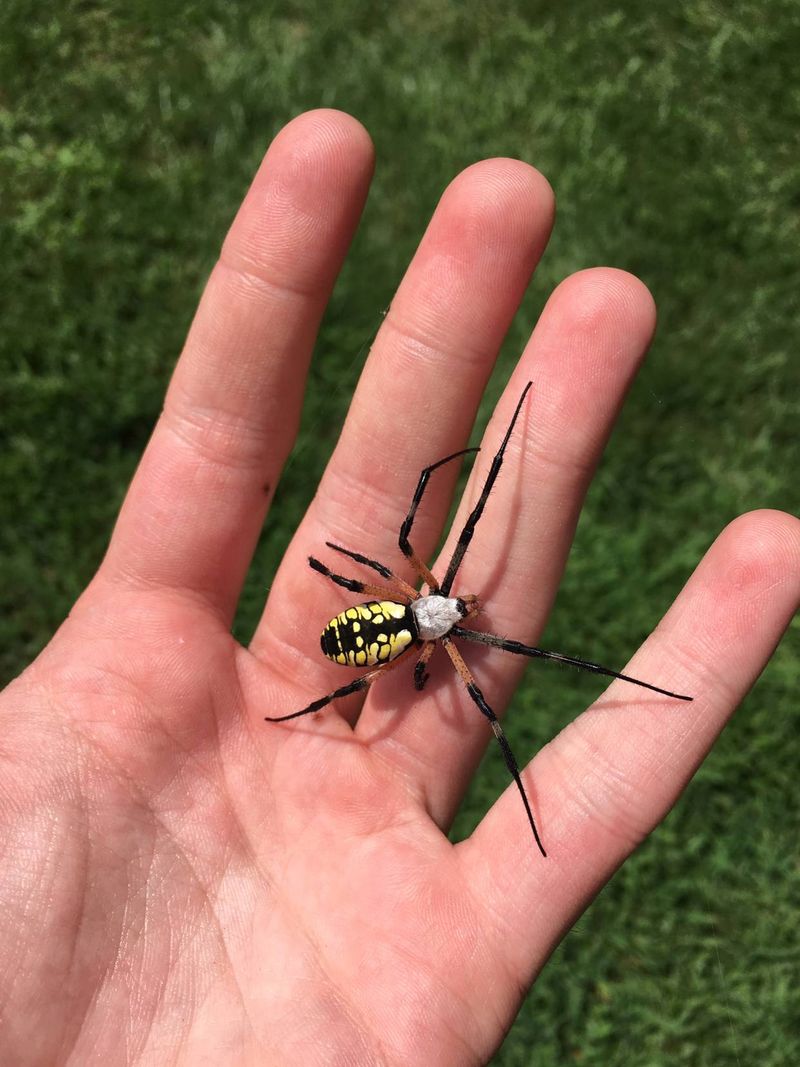
Encouraging spiders supports organic gardening practices by reducing dependence on harmful pesticides. Their constant hunting helps maintain insect balance without chemicals that can harm beneficial insects, pets, or people.
This natural approach preserves soil health and protects pollinators like bees and butterflies. Many gardeners deliberately create spider-friendly habitats using rock piles and native plants to enhance this free pest management system.
14. Surprising Intelligence

Recent research reveals spiders possess remarkable problem-solving abilities despite their tiny brains. Some species can learn, remember, and adjust hunting strategies based on past experiences.
Jumping spiders plan complex routes to reach prey, showing spatial awareness comparable to much larger animals. This unexpected intelligence challenges our assumptions about simple creatures and suggests consciousness exists in more life forms than we previously recognized.
15. Weather Predictors
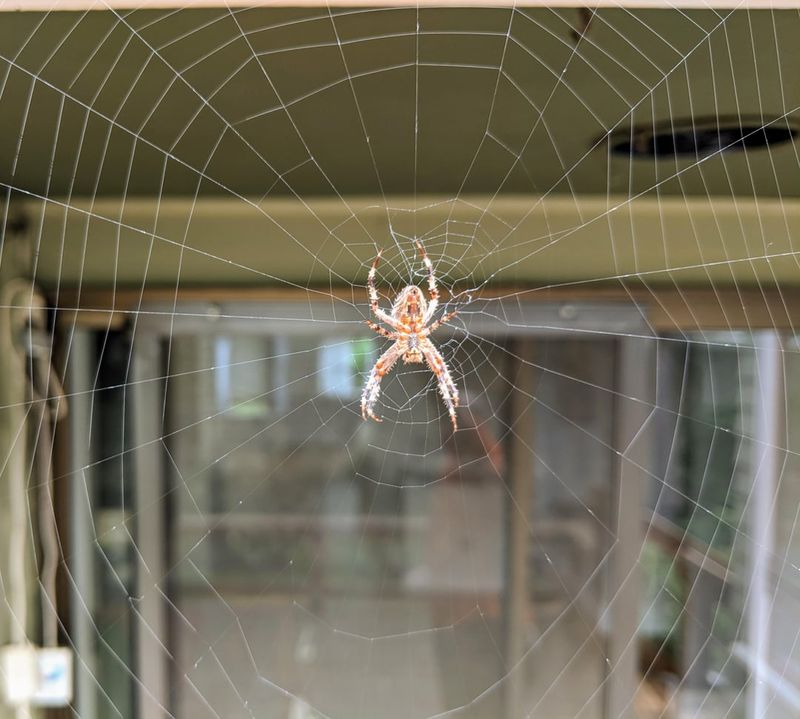
Farmers have long observed spider behavior as a natural weather forecasting system. Many species rebuild or reinforce webs before storms, sensing barometric pressure changes imperceptible to humans.
Others construct different web patterns depending on upcoming weather conditions. Watching spiders in your garden connects you with this ancient form of weather prediction that worked long before smartphone apps and meteorologists.
16. Ecosystem Services Value
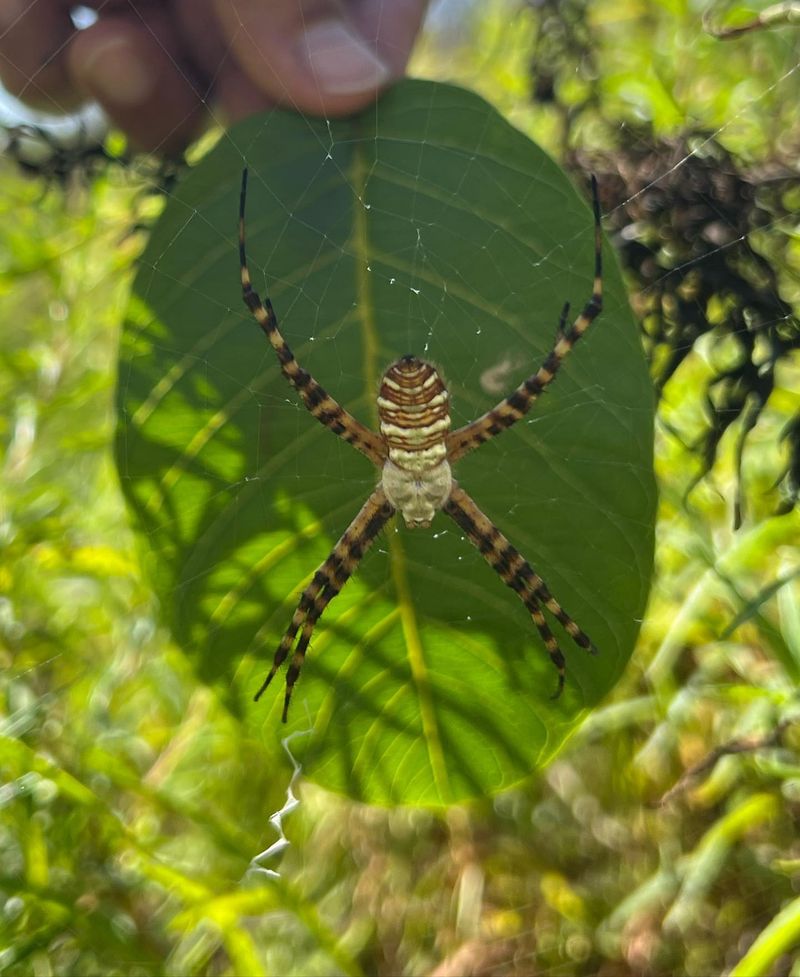
Economists now recognize the monetary value of services that spiders provide. Their pest control work saves billions in crop damage and reduced pesticide use globally each year.
In your backyard, this translates to healthier plants and less money spent on chemical solutions. By preserving spiders, you’re supporting natural systems that provide economic benefits while maintaining ecological health for future generations.






